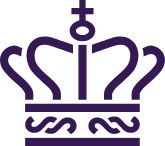Indictment

When the police have completed their investigation, the prosecution service will decide on any further action in the case.
The prosecution service will bring formal charges if they find that there is sufficient evidence to convict the provisionally charged person. When formal charges are brought, the case is sent to the court along with an indictment listing the charges. The person who was previously only provisionally charged has now been formally charged.
When the court has received the indictment, it sets a trial date and time for the case to be heard. When the date has been set, the defendant or defendants and witnesses receive a summons to appear in court. Read more about how a case may conclude if not sent to court.

